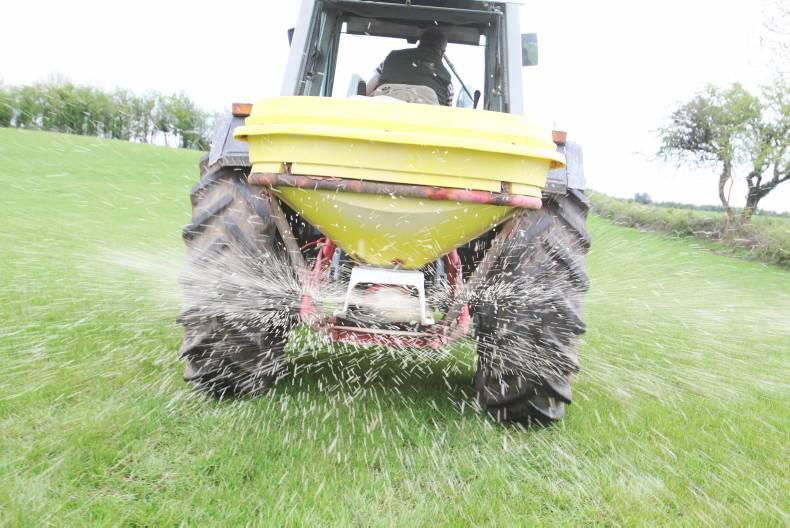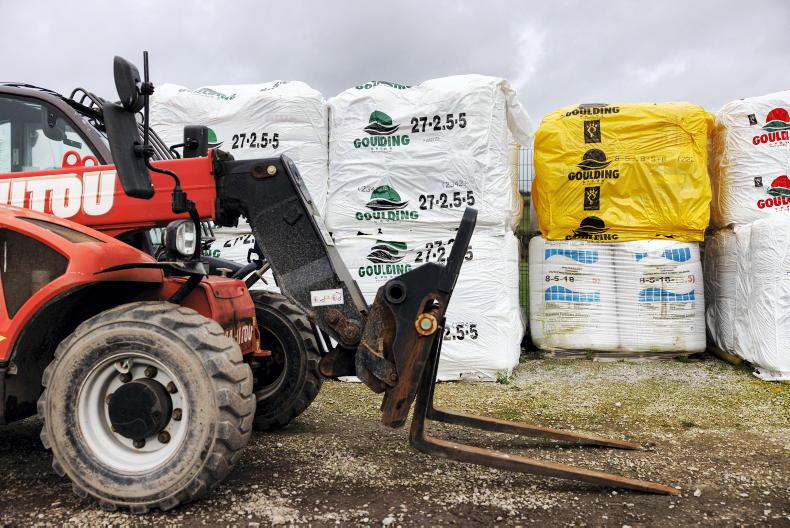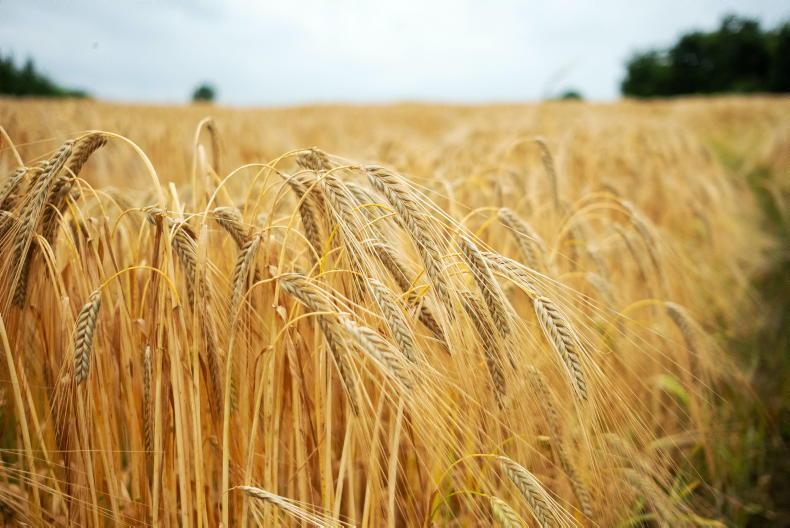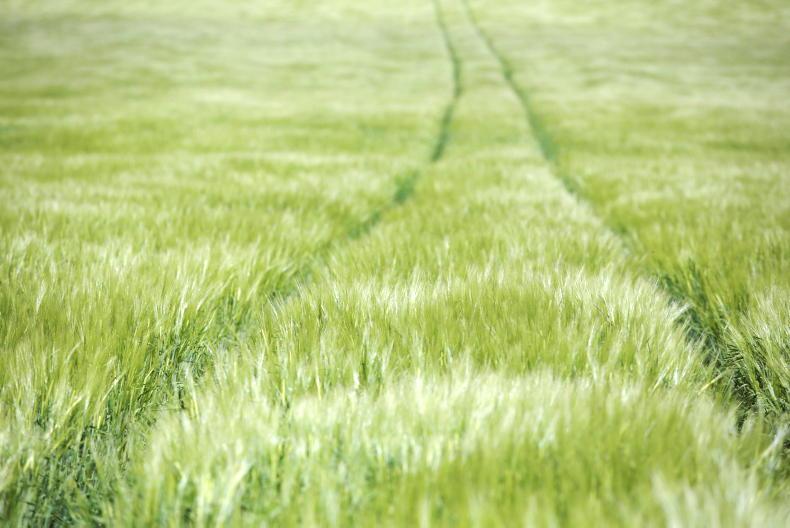Fertiliser prices have reduced by as much as €10/t to €15/t with some merchants throughout the country over the past week.
However, not every co-op is reporting these drops, with many merchants holding prices steady at last week’s figures.
Merchants quoting prices at the higher end of the scale last week have reduced these prices over the past week and are now selling stock in line with merchants at the lower end of the scale.
Demand for fertiliser has been slow over the last week, as weather has become more unsettled.
With first-cut silage all but complete right across the country, a lull in demand is expected at this time of year, as farmers wait for second-cut silage to commence.
Grass growth has been good over the past few weeks, with farmers under less pressure to spread fertiliser on grassland, especially those not highly stocked.
One merchant in the southeast is reporting a lot of smaller volumes going over the last week, with farmers only buying exactly what they need in an effort to keep costs down.
Fertiliser
Of the fertiliser still moving from merchants’ yards, the majority is nitrogen-based CAN (27% N). Prices are ranging between €235/t and €250/t, with lower prices now more easily available from merchants.
Higher prices are more common in the west of the country, with southern merchants often more competitive on prices.
Many southern merchants who had CAN as high as €252/t last week have dropped their prices to €242/t on Monday.
In general, 18:6:12 is trading between €350/t and €360/t, with drops of €10/t for some of the higher-quoting merchants.
Lows of €340/t can be got where large quantities are purchased.
Cut sward (24:2.5:10) is trading between €350/t and €360/t, while Pasturesward (27:2.5:10) is slightly further back at €340/t to €350/t.
Many merchants are reporting that farmers are also looking at other compounds, such as 21:2:10 for €320/t and 24:2:5 for €304/t.
10:10:20 is generally costing between €370/t and €390/t with merchants.
Farmers buying larger volumes of fertiliser, usually between 6t and 10t or more and ensuring prompt payment to merchants, are often negotiating better prices than those buying smaller lots on credit.
As long as variation exists among merchants, farmers are encouraged to shop around to ensure they are getting the best possible deal, as incomes continue to come under pressure.










SHARING OPTIONS